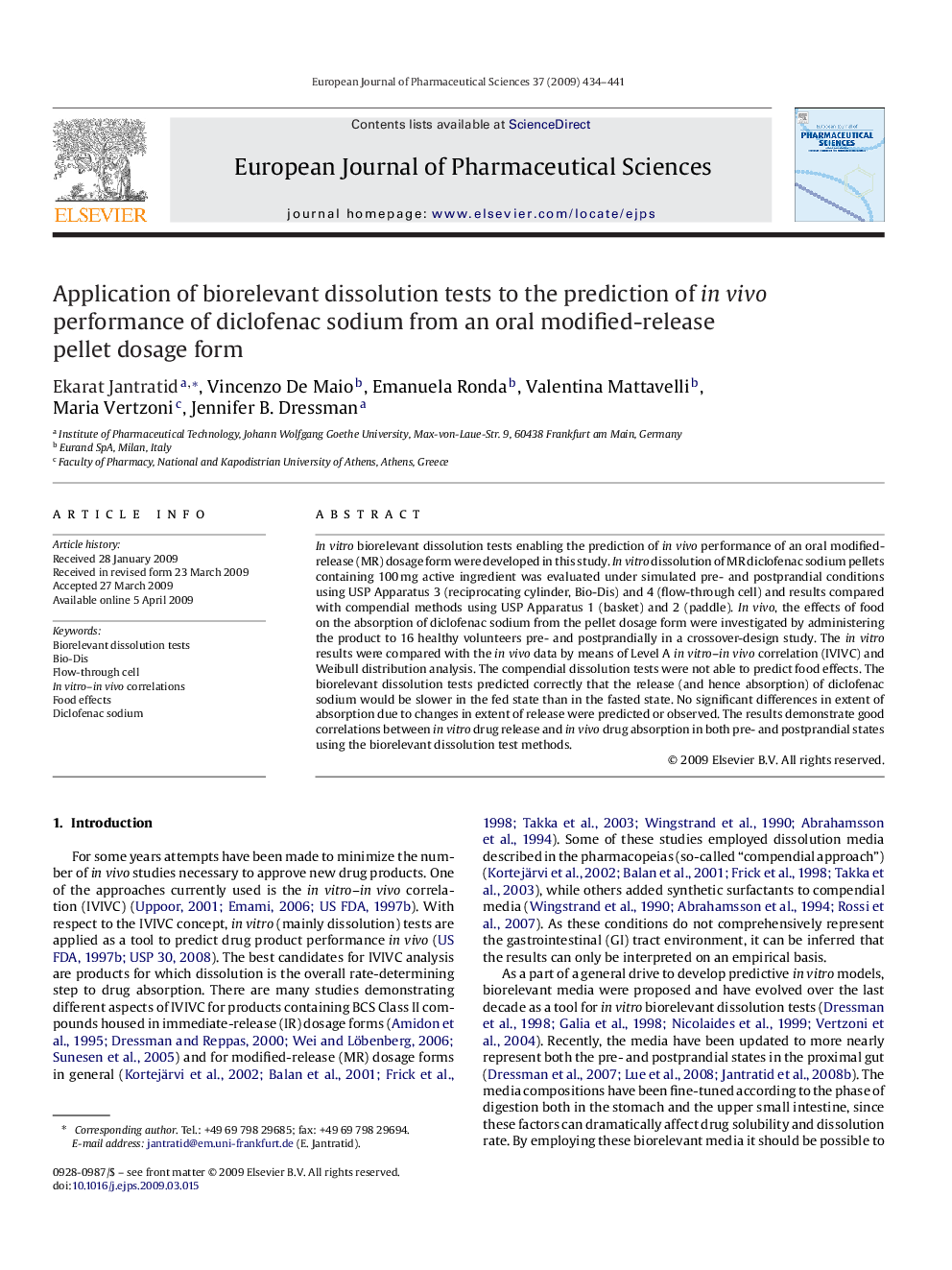| Article ID | Journal | Published Year | Pages | File Type |
|---|---|---|---|---|
| 2481701 | European Journal of Pharmaceutical Sciences | 2009 | 8 Pages |
In vitro biorelevant dissolution tests enabling the prediction of in vivo performance of an oral modified-release (MR) dosage form were developed in this study. In vitro dissolution of MR diclofenac sodium pellets containing 100 mg active ingredient was evaluated under simulated pre- and postprandial conditions using USP Apparatus 3 (reciprocating cylinder, Bio-Dis) and 4 (flow-through cell) and results compared with compendial methods using USP Apparatus 1 (basket) and 2 (paddle). In vivo, the effects of food on the absorption of diclofenac sodium from the pellet dosage form were investigated by administering the product to 16 healthy volunteers pre- and postprandially in a crossover-design study. The in vitro results were compared with the in vivo data by means of Level A in vitro–in vivo correlation (IVIVC) and Weibull distribution analysis. The compendial dissolution tests were not able to predict food effects. The biorelevant dissolution tests predicted correctly that the release (and hence absorption) of diclofenac sodium would be slower in the fed state than in the fasted state. No significant differences in extent of absorption due to changes in extent of release were predicted or observed. The results demonstrate good correlations between in vitro drug release and in vivo drug absorption in both pre- and postprandial states using the biorelevant dissolution test methods.
